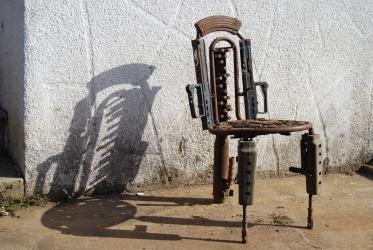Displaying 1 - 11 of 11
WCC pays tribute to ecumenist pioneer
08 May 2019
Paving the way for ecumenical studies, learning English in Bossey
24 September 2018
#WCC70: Nathan Söderblom, ecumenical pioneer
29 August 2018
Broken glass of hope grown out of rubble
16 July 2018
Trying to do good for the world
18 December 2017
Walking to Emmaus in the Holy Land, and Sweden
12 May 2015






